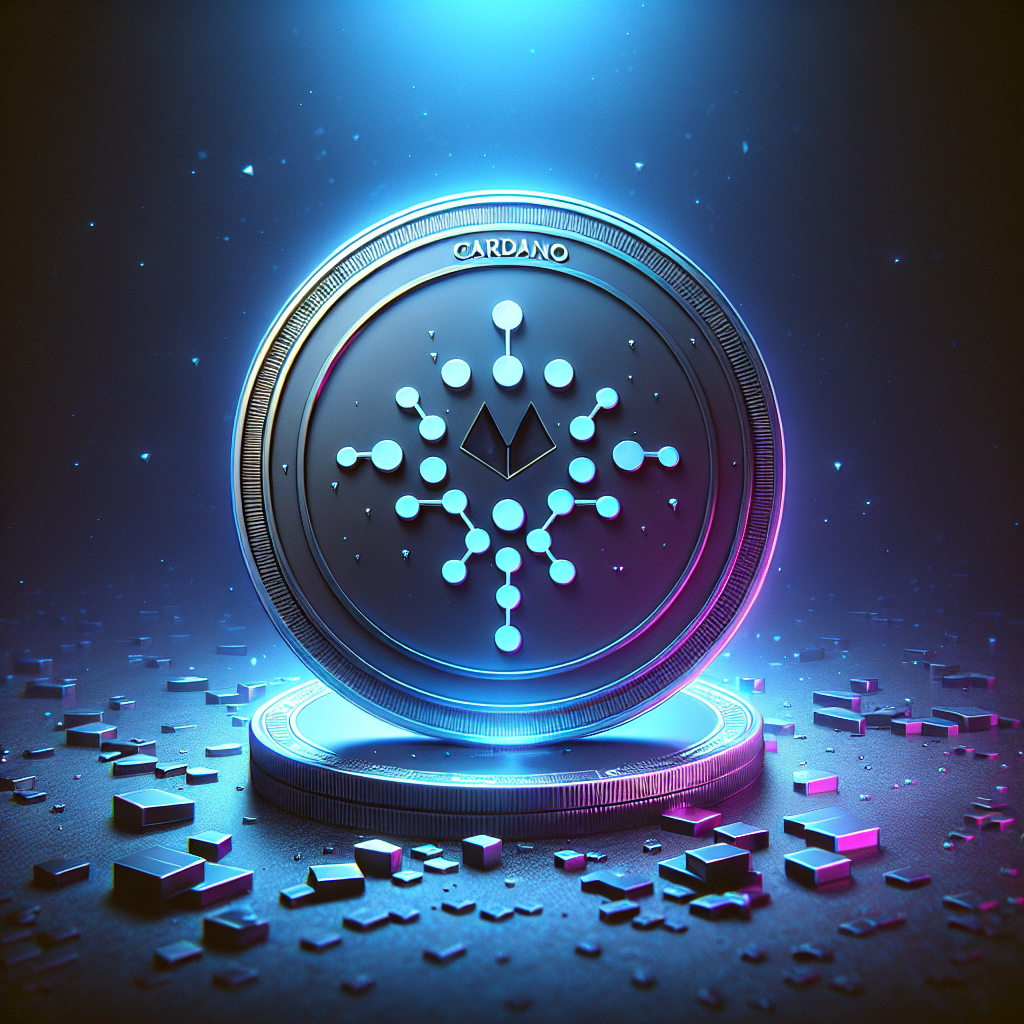Looking for a more cost-effective alternative to Ethereum in light of rising gas fees? ChatGPT has picked three low-fee “Ethereum killers” that you should consider. BNB Chain (BNB), created by Binance, offers low transaction fees and fast confirmation times, making it an attractive option for users seeking alternatives to Ethereum. Solana (SOL) stands out for its high throughput and low transaction costs, utilizing a unique consensus mechanism called Proof of History (PoH) to improve scalability. Cardano (ADA) is another promising option, with its native token ADA experiencing significant gains in the past month. However, it's important to consider other factors such as security, scalability, decentralization, and adoption when evaluating these projects. While they offer more efficient alternatives for gas fees and network scalability, there are no guarantees that they will supersede Ethereum's dominance in terms of capitalization and total value locked on DeFi.
Cardano (ADA): A Promising ‘Ethereum Killer' with Low Fees

Introduction to Cardano
Cardano is a decentralized blockchain platform that aims to provide a more efficient and cost-effective alternative to Ethereum. It was founded in 2015 by Charles Hoskinson, one of the co-founders of Ethereum, and has gained significant attention in the cryptocurrency community for its unique features and potential.
Overview of Ethereum's Gas Fee Problem
In recent months, Ethereum gas fees have been a major concern for developers, investors, and users of the network. Gas fees refer to the cost of performing transactions or executing smart contracts on the Ethereum blockchain. As the popularity of Ethereum has grown, the network has become congested, leading to increasingly high gas fees. This has made it less practical for everyday users and has driven many to search for alternative low-fee options.
Exploring ‘Ethereum Killers'
‘Ethereum killers' refer to blockchain platforms that aim to provide similar functionality to Ethereum but with lower gas fees and improved scalability. These platforms have gained attention as potential alternatives for users looking for more cost-effective options. Cardano is one such platform that has emerged as a promising Ethereum killer, offering unique features and advantages over its competitors.
Cardano's Unique Selling Points
Cardano stands out among other Ethereum killers due to its unique selling points. These include low transaction fees, scalability and throughput, decentralized governance, interoperability and smart contract capabilities, and its native token ADA.
Low Transaction Fees
One of the key advantages of Cardano is its low transaction fees. Compared to Ethereum, which has experienced skyrocketing gas fees, Cardano offers a more cost-effective option for users. This makes it an attractive choice for those looking to perform transactions or execute smart contracts without incurring significant costs.

Scalability and Throughput
Scalability is a crucial aspect of any blockchain platform, and Cardano has focused on addressing this issue. The platform utilizes the Ouroboros protocol, a proof-of-stake consensus algorithm, which allows for scalability and higher throughput compared to Ethereum's proof-of-work algorithm. Additionally, Cardano has plans for layer-2 solutions and sidechains to further enhance scalability and accommodate growing demand.
Decentralized Governance
Cardano takes a unique approach to decentralized governance, empowering the community to participate in decision-making processes. Through initiatives like Voltaire and Catalyst, Cardano aims to ensure transparency and inclusivity in its governance model. This sets it apart from Ethereum and other blockchain platforms, which often rely on centralized figures or organizations for decision-making.
Interoperability and Smart Contracts
Interoperability is another crucial aspect of blockchain platforms, allowing for seamless communication and integration with other networks. Cardano has developed solutions to enable interoperability with other blockchains, allowing for the exchange of assets and resources. Additionally, Cardano supports smart contracts and is compatible with the Ethereum Virtual Machine (EVM), making it easier for developers to transition from Ethereum to Cardano.
Cardano's Native Token: ADA
Cardano's native token, ADA, plays a fundamental role in the platform's ecosystem. It is used for transaction fees, participating in governance, and accessing various services on the network. ADA has gained significant attention and has seen substantial price gains in the cryptocurrency market, making it an attractive investment opportunity for both traders and long-term holders.
Comparison with Other ‘Ethereum Killers'
While Cardano is considered a promising Ethereum killer, it is essential to evaluate its competitors. Two other notable options are Binance Smart Chain (BNB) and Solana (SOL). Binance Smart Chain offers low transaction fees and fast confirmation times, emphasizing high throughput and low costs. Solana, on the other hand, distinguishes itself with a unique consensus mechanism called Proof of History (PoH) and aims to provide a fast and cost-effective platform for decentralized applications.
Factors to Consider When Evaluating Layer-1 Blockchains
When choosing an Ethereum killer or any layer-1 blockchain, several factors should be considered:
- Security: Ensuring the security of a blockchain platform is paramount. Evaluating the technology's robustness, vulnerability to attacks, and the track record of the development team is essential.
- Scalability: Blockchain networks need to handle a significant number of transactions efficiently. Scalability solutions like sharding, layer-2 solutions, and sidechains play a crucial role in determining a platform's scalability.
- Decentralization: Blockchain platforms should strive for a decentralized governance model, with decision-making power spread among network participants rather than concentrated in a few entities.
- Adoption: The level of adoption and developer interest in a platform is indicative of its potential success. The availability of applications and services built on the network can contribute to its longevity and growth.
Challenges and Uncertainties for Cardano
While Cardano shows promise as an Ethereum killer, there are challenges and uncertainties it faces. Competition among blockchain platforms is fierce, and Cardano must continue to innovate and deliver on its promises to gain a significant market share. Moreover, regulatory considerations, evolving technology, and the ever-changing cryptocurrency landscape present uncertainties that may impact Cardano's future.
Conclusion
Cardano offers a compelling alternative to Ethereum, positioning itself as a promising Ethereum killer with its low transaction fees, scalability solutions, decentralized governance, interoperability, and smart contract capabilities. While it faces challenges and uncertainties, the platform's unique features, academic research-based approach, and growing ecosystem make it an exciting project in the cryptocurrency market. As the demand for alternatives to Ethereum's high gas fees continues to rise, Cardano's potential for growth and adoption remains strong.